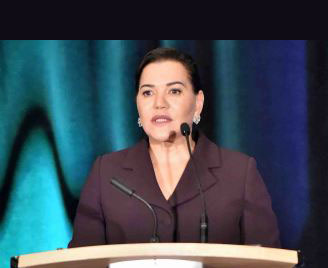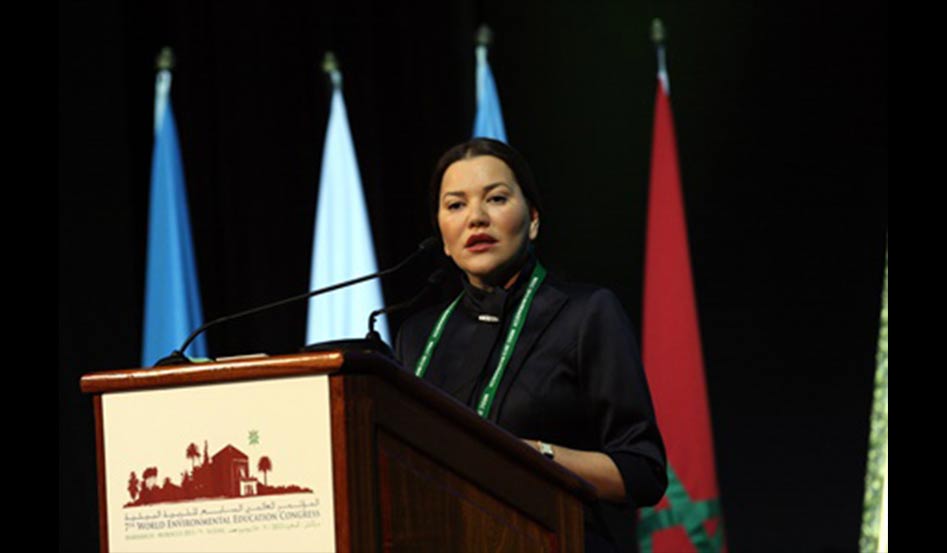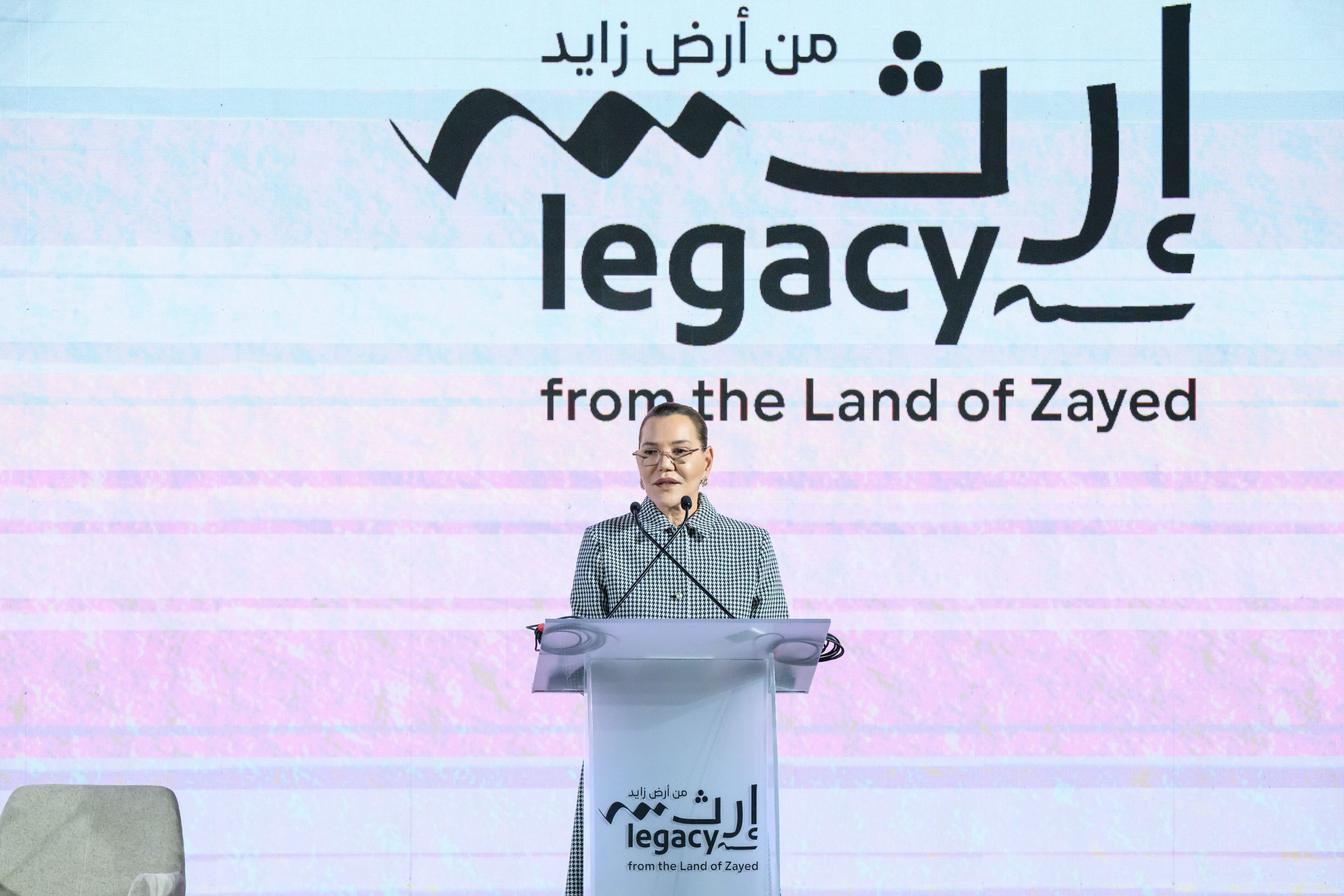
Praise be to God May Peace and Blessings be upon the Prophet, His Kith and Kin
Your Royal Highness, Princess Lalla Hasnaa, President of the Mohammed VI Foundation for Environmental Protection,
The Distinguished Director-General of UNESCO
The Distinguished Director-General of ISESCO
The Distinguished Executive Director of UNEP
The Distinguished President of the international Foundation for Environmental Education,
Your Excellencies,
Ladies and Gentlemen,
I am delighted to address your assembly, the Seventh World Environmental Education Congress, and to tell you how proud we are that it is being hosted by our country and chaired by My Sister, Her Royal Highness Princess Lalla Hasnaa.
This world gathering is of special significance, not only because it is being attended by representatives from many countries, organizations and international specialized agencies, but also because it provides a good opportunity to focus on the role of education and awareness-raising in achieving sustainable development. It offers a chance to share views and get a deeper insight into this issue, which should be addressed in light of the profound changes the world has gone through over the last decade, since your first conference, held in 2003 in the Republic of Portugal.
Your Excellencies,
Ladies and Gentlemen,
The Kingdom of Morocco is fully aware that to achieve robust, sustainable growth, together with balanced social development, it is necessary to adopt a proactive policy for the protection of the environment. To this end, resources must be mobilized and national efforts geared towards achieving sustainable development, in its economic as well as ecological dimensions.
In this respect, it should be pointed out that our country was among the first nations to subscribe to the principles of the “Rio Declaration”, and to “Agenda 21” as well as to the multilateral agreements on the environment. In addition, Morocco has made great efforts on the legal and institutional levels to implement numerous plans and programs aimed at integrating the environmental dimension into its public policies.
However, transition towards sustainable development requires the mobilization of resources, along with the necessary technical, legal and financial mechanisms. More importantly, it calls for a radical change in our way of thinking and our working methods. The transformation itself necessitates optimal utilization of the human and social capital.
Accordingly, education and awareness-raising are regarded as essential requisites for a successful transition towards a green, solidarity-based, inclusive, eco–friendly economy. Similarly, it is important to ensure that all stakeholders, such as the public authorities, the private sector and civil society, join efforts to achieve this objective.
Your Excellencies,
Ladies and Gentlemen,
Your choice of theme, namely “Environmental Education in Cities and Rural Areas: Seeking greater Harmony”, is both relevant and fully consonant with the hopes we are pinning on this important gathering. It is all the more pertinent as it raises a multi-dimensional issue of paramount importance, which lies at the heart of the question of sustainable development, especially in developing countries. Thus, to achieve harmony between cities and rural areas, it is necessary to control rural migration flows and curb the desertification phenomenon generated by the adverse effects of climate change.
This leads us to the question of how best to foster locally and regionally–based solidarity, and how to determine the type of human settlements that we should create in order to meet our development needs. Indeed, it has become increasingly difficult to make clear distinctions between rural and urban areas. But we already know that half of the world’s population is urban inhabitants.
Accordingly, it is hoped that this international gathering, with its experienced, highly skilled participants, will explore ways to develop rational, more ambitious methods for dealing with environmental education and awareness-raising issues in connection with the environment. These methods have a pivotal role to play in enhancing teachers’ and trainers’ networks, in coordination with researchers’ and educationists’ networks, and with the participation of the academic community, which should be involved on a larger scale.
It is our hope, ladies and gentlemen, that you will send a clear message from Marrakech, calling for increased commitment on the part of public authorities, specialized agencies and sponsors, and urging for more innovative ways to capitalize on good practices and disseminate the principles of good governance and accountability in countries that need them most.
Aware of the importance of these issues and of their close connection with the question of sustainable development, the Kingdom of Morocco reiterates its strong commitment to work actively within the international community, to develop adequate solutions, share them with all partners concerned, and to cooperate with these partners for the implementation of these solutions.
This is why our country has played an active role, especially as part of the international campaign initiated by the Fifth World Urban Forum, which was held in Rio in 2010. Morocco is already considered a model country in this field.
Your Excellencies,
Ladies and Gentlemen,
The “Rio + 20” document clearly reaffirms the international community’s commitment to promoting a global strategy for urbanism and human settlements, in partnership with the population. The document stresses the importance of education and public awareness-raising as fundamental prerequisites for bringing about the deep transformations needed to move towards sustainable ways of life, consumer patterns and modes of production.
On this occasion, I wish to commend the valuable efforts being made by NGOs involved in the protection of the environment. First among these is the Mohammed VI Foundation for Environmental Protection, which has become a member of the Foundation for Environmental Education, and which is endeavoring to raise environmental awareness and to promote environmental education, mainly among the young generation. To this end, it has built effective partnerships with the government departments, especially the Ministry of National Education, with public agencies as well as the private sector and the civil society organizations concerned.
Another source of satisfaction is the increase in the number of associations dealing with environmental issues at national, local and community levels. We appreciate their effort to focus on the role of environmental education and to make the public – especially children and young people – aware of the need to preserve the environment and to contribute effectively to achieving sustainable development.
In order to give this trend a national and strategic dimension, and in keeping with the principle of participatory democracy enshrined in the new Kingdom’s Constitution, civil society organizations are called upon today to make an effective contribution to implementation of the new national framework law, namely the Charter for Environment and Sustainable Development, which has been submitted to Parliament for adoption. It embodies the idea that all stakeholders should be involved in the preparation and implementation of policies, strategies, programs and plans related to the protection of the environment and to sustainable development.
The National Charter is the outcome of broad, extensive consultations with the various partners concerned, including NGOs from civil society. It seeks to instill in the minds of individuals and groups a keen sense of the environment, and thus help bring about genuine change in attitudes. It also seeks to encourage all stakeholders to join efforts dedicated to the protection of biodiversity and the quality of natural resources. In addition, it aims to foster a genuine culture for the protection of the environment, by making it a daily preoccupation for all citizens – men and women alike – within the sustainable development process, which is underway in the Kingdom.
The Kingdom’s new Constitution includes significant provisions devoted to the environment issue, and stipulates the right for all citizens to live in a healthy environment and to enjoy the fruits of sustainable development. It further provides for active NGOs involved in the protection of the environment to have representatives at the Economic, Social and Environmental Council. In addition to these constitutional provisions, the new National Charter provides the basis and guidelines for all national laws and by-laws related to development.
Your Excellencies
Ladies and Gentlemen,
We very much look forward to the conclusions and the relevant recommendations which will emerge from this international gathering. They will certainly enrich the current debate on the best ways to develop environmental education curricula and adjust them to the objectives of the sustainable development we seek to achieve.
Welcome to Morocco, your second home. I wish you a pleasant stay here and every success in your deliberations.
Wassalamu alaikum warahmatullahi wabarakatuh.
Mohammed VI
King of Morocco
June 7 2013

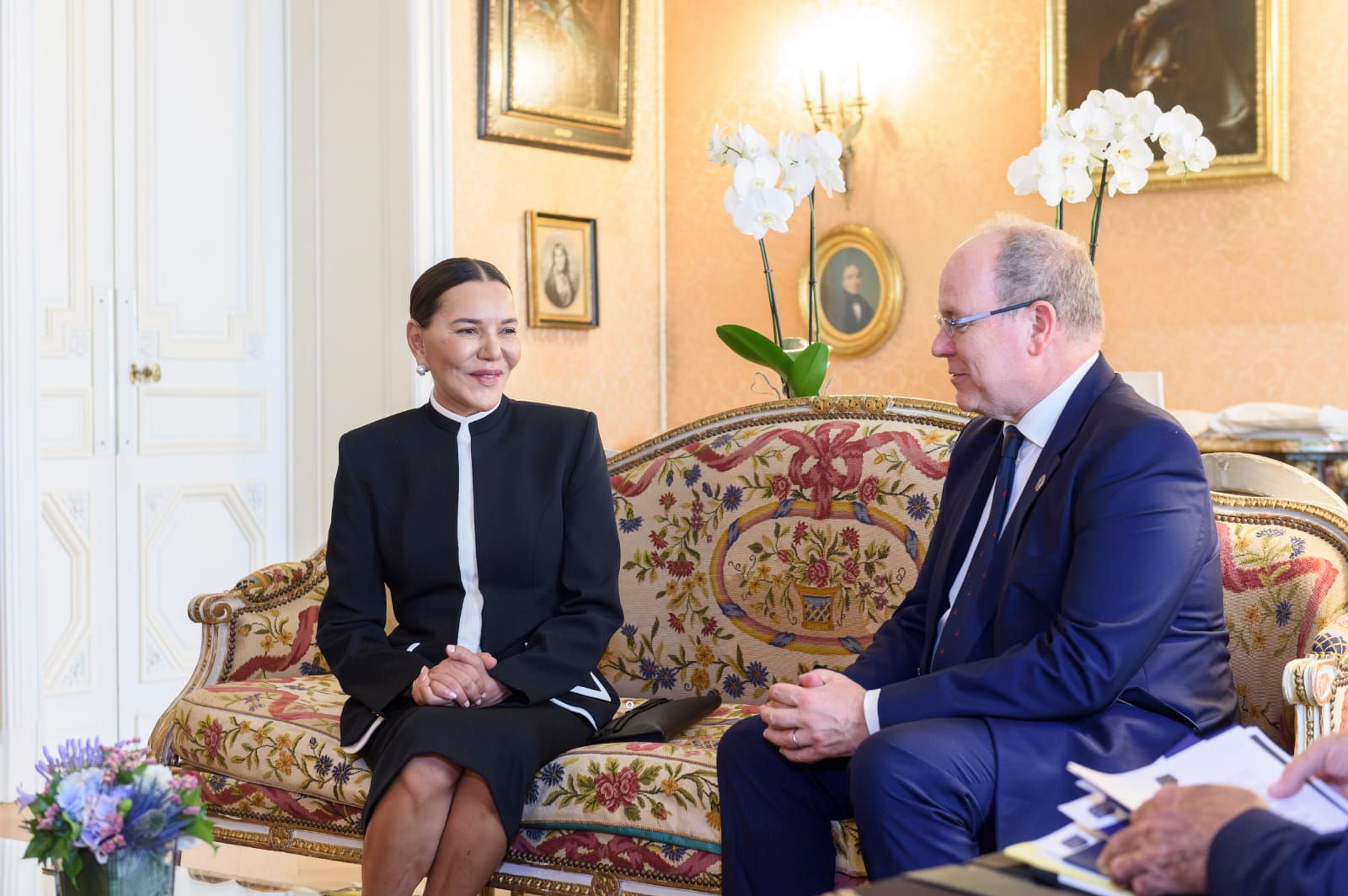
Monaco – June 14th, 2023
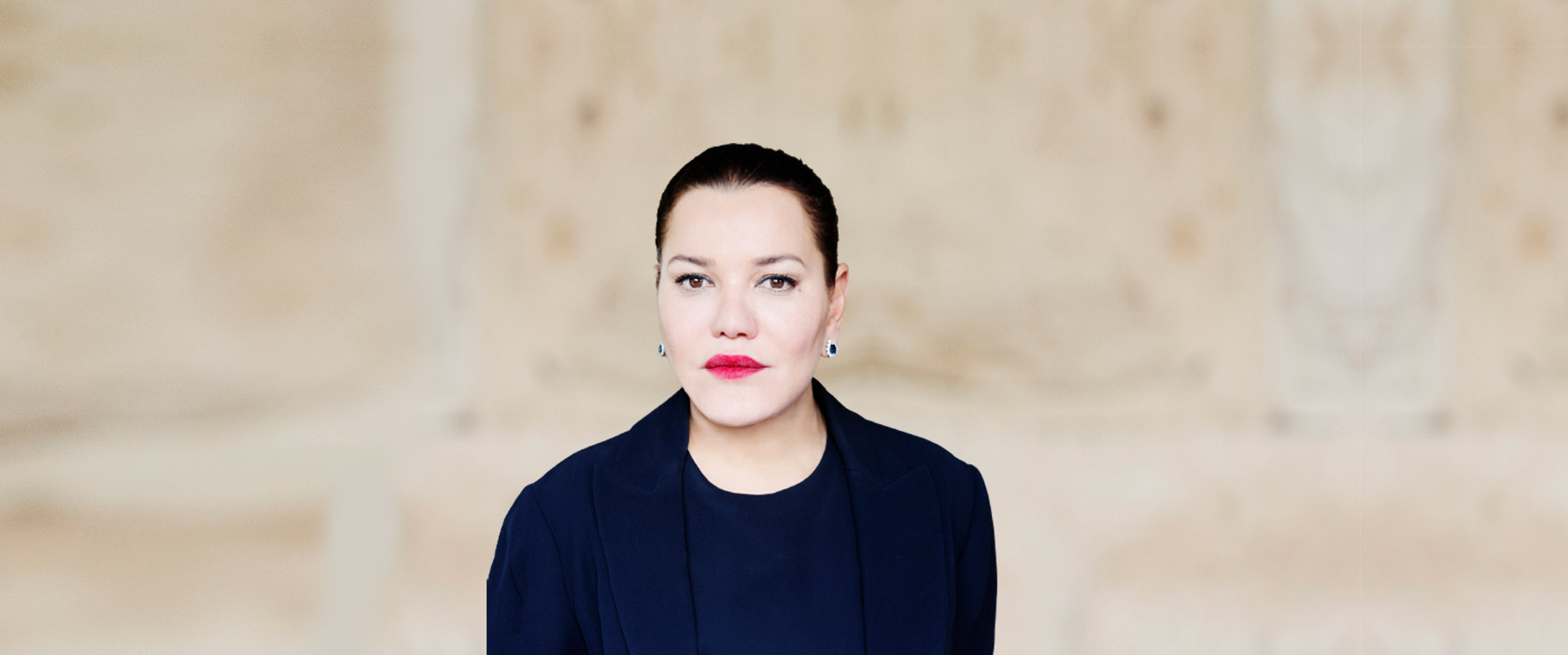
May 17, 2021
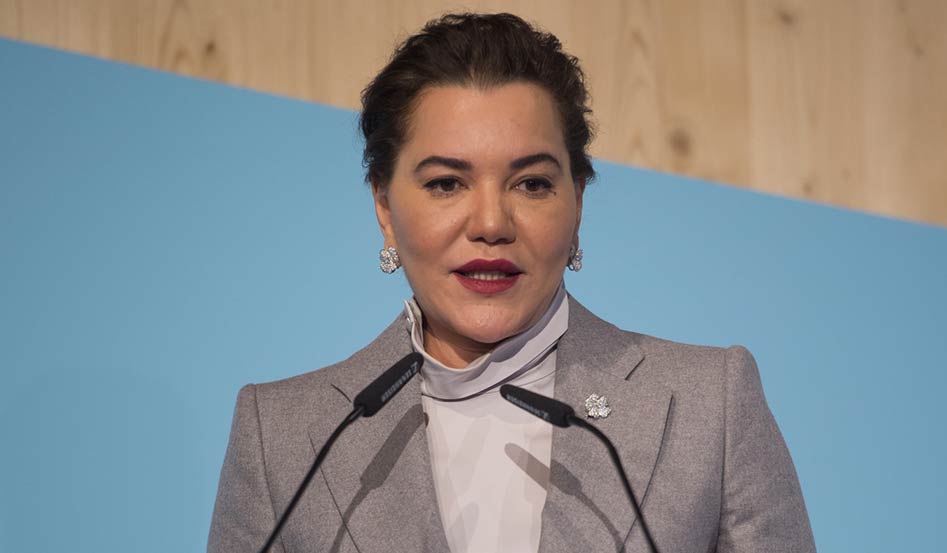
February 3, 2021
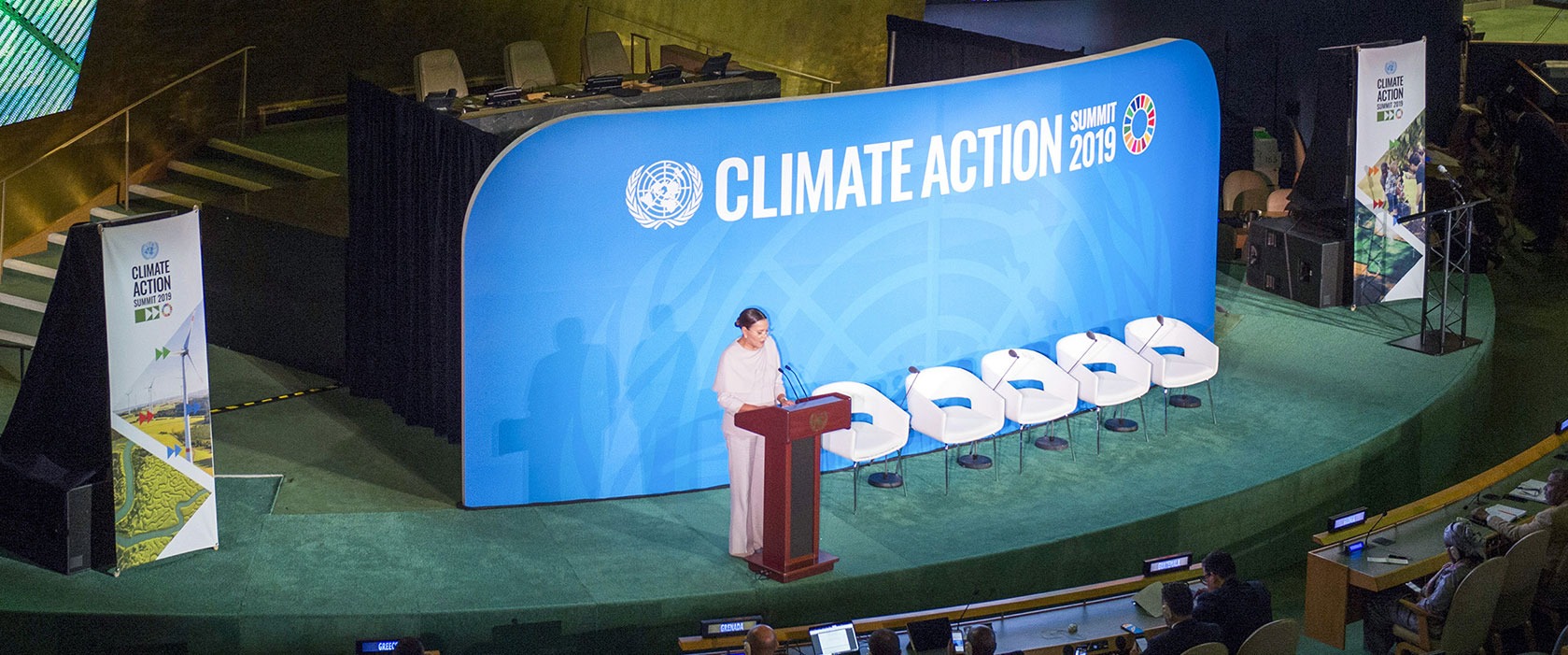
New York – September 23, 2019
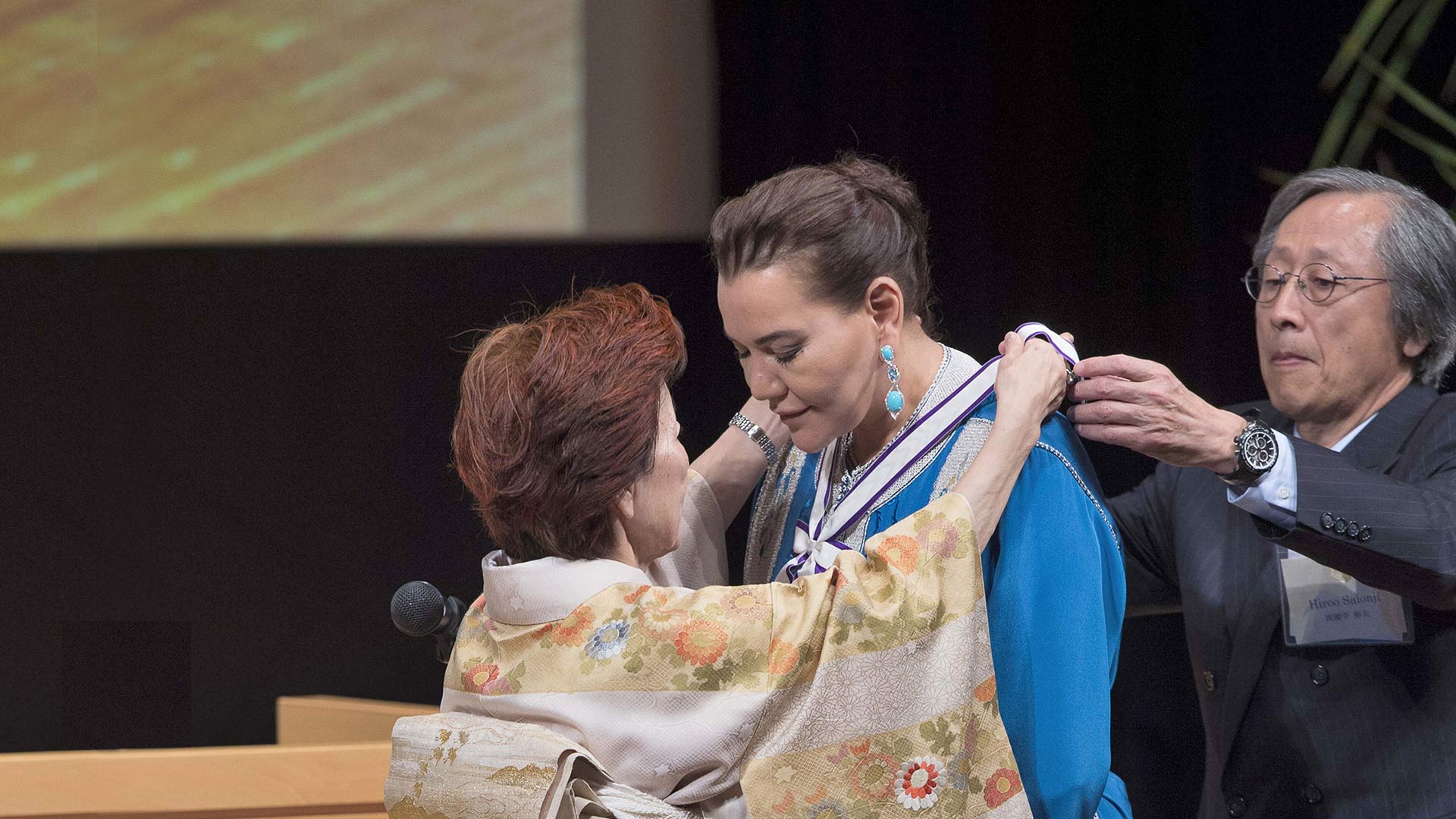
Tokyo – 23 novembre 2018
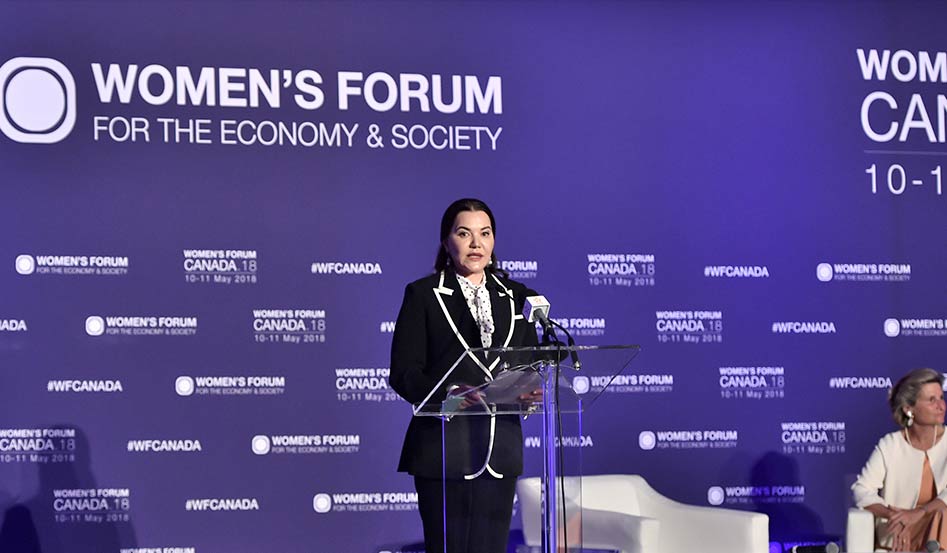
Toronto – May 10,2018
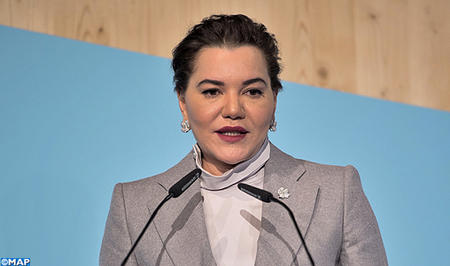
Bonn – 16 November 2017
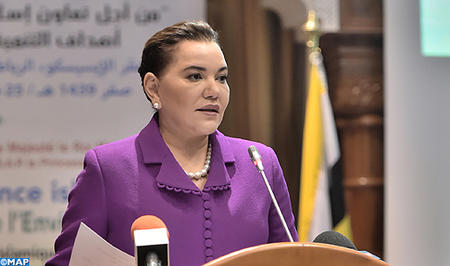
Rabat – October 25, 2017
